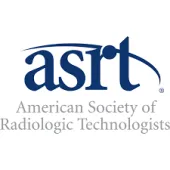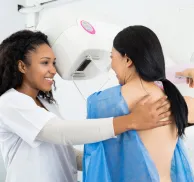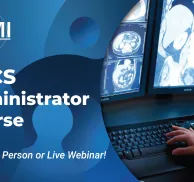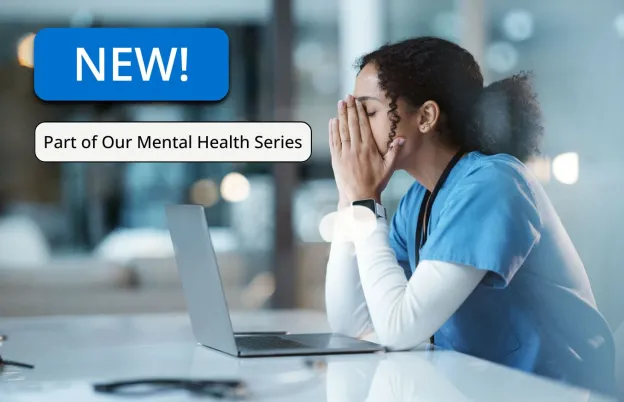
When Sadness Becomes More: A Closer Look at Depression - OnDemand
Credits
- 1 ASRT Category A
About this Program
Depression is one of the most common yet misunderstood mental health conditions affecting people across all walks of life—including healthcare professionals. In this comprehensive course, Dr. Brenda Rinehart explores the complexities of depression, from its root causes and emotional impact to its clinical classifications and long-term health implications. Participants will learn to distinguish between normal sadness and clinical depression, as well as acute versus chronic presentations.
The course also dives into contributing factors such as trauma, brain chemistry, genetics, and environmental stressors. A wide range of treatment approaches are discussed, including pharmacologic options, psychotherapy models, and alternative therapies such as meditation and acupuncture. Finally, the course addresses the often-overlooked consequences of untreated depression and examines how stigma continues to affect mental health care and outcomes.
Topics Covered Include:
- What is Depression?
- What Does Depression Feel Like?
- What’s the Difference Between Depression and Feeling Down or Sad?
- Why do People Have Depression?
- Childhood trauma
- PTSD
- Genetics
- Brain Chemical imbalances
- Chronic medical conditions
- Medications
- Environmental factors
- Low self-esteem
- A history of other mental health disorders
- A significant life event such as giving birth
- Long-term negative thinking
- Do Healthcare Workers Experience More Depression Than Others?
- What's the Difference Between Acute and Chronic Depression?
- Is Manic Depression Another Word for Depression?
- What Happens When a Person Experiences Acute or Situational Depression?
- What Happens When a Person Experiences Chronic Depression?
- Why Is Chronic Depression Considered Harmful?
- What Are the Efficacies of Treatments for Depression?
- Serotonin Reuptake Inhibitors
- Dopamine Reuptake Inhibitors
- Psychedelics
- CBD
- Alcohol
- Eastern Medicinal Practices
- Acupuncture
- Supplements
- Meditation
- Yoga
- Psychotherapy
- Cognitive behavioral therapy
- Interpersonal psychotherapy
- Problem-solving therapy
- Behavioral activation therapy
- What Happens When Depression is Left Untreated?
- Secondary Mental Health Diagnoses
- Anxiety
- Personality disorders
- Substance use disorders
- Suicide
- Health issues
- Chronic pain
- Cardiac issues
- Decreased Longevity
- Weakened immune system
- Obesity/eating disorders
- Gastrointestinal
- Relationship and workplace issues
- Secondary Mental Health Diagnoses
- Mental Health Stigmas
How it Works:
- The On Demand CE activity that you purchased will be located in your “My Account” section once you log into the MTMI Website.
- You have three attempts to pass each quiz.
- You must earn a score of 75% or higher.
- Credit is recorded the day you submit and pass the quiz and is determined using Central time.
- You have 30 days to complete and pass the quiz.
- Once passed, access your MTMI “My Account” to print your “Certificate of Completion.”
- At the conclusion of this on-demand video, an evaluation form will be emailed to you.
- This video expires 1 year after purchase date.
Educational Objectives
At the conclusion of this program, the participants should be able to:
- Differentiate between clinical depression and temporary emotional lows
- Explain the differences between acute and chronic depression
- Evaluate the efficacy of various treatments for depression
- Describe the health, occupational, and social consequences of untreated depression
- Analyze the impact of mental health stigma on diagnosis, treatment, and patient care
Program Faculty
Meet your presenter(s)

Brenda Rinehart
PhD
Dr. Brenda Rinehart earned her doctoral degree in Industrial and Organizational (workplace) psychology from Capella University. She holds an MBA from Southern Nazarene University, and undergraduate degrees in Human Resource Management, and Radiology. Dr. Rinehart is a consultant, professor, curriculum designer, national speaker, and author of many peer-reviewed journal articles. She spent sixteen years of her career in healthcare administration and sixteen years in front-line clinical care. She earned her Fellows through AHRA in 2012. She earned certifications in radiology administration, CT, mammography, radiography, LEAN, and specific psychological assessments. Dr. Rinehart lives with her husband in the mid-west and is a proud mom to nine children and many grandchildren.
Credits
Accredited training programs

ASRT Category A
This program provides 1 hour(s) of Category A continuing education credit for radiologic technologists approved by ASRT and recognized by the ARRT® and various licensure states. Category A credit is also recognized for CE credit in Canada. You must attend the entire program to receive your certificate of completion.










